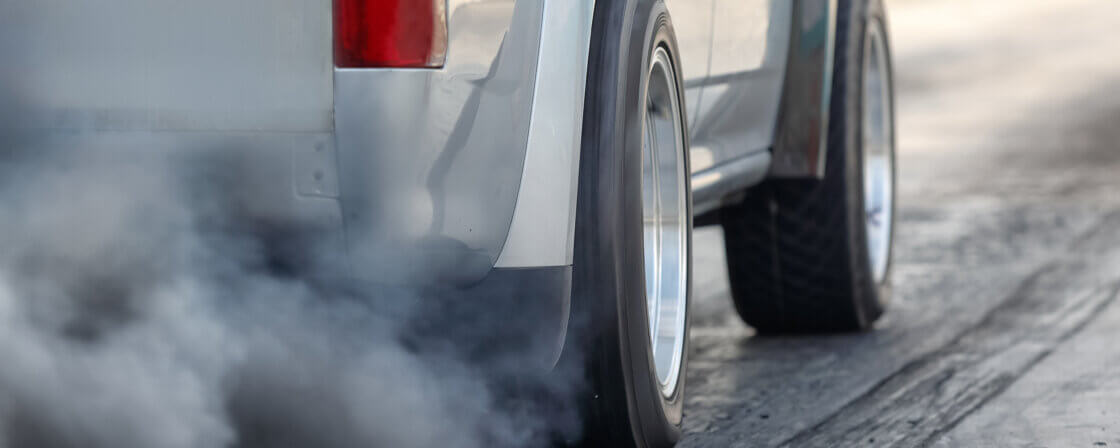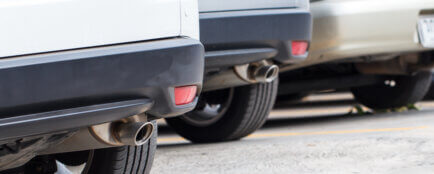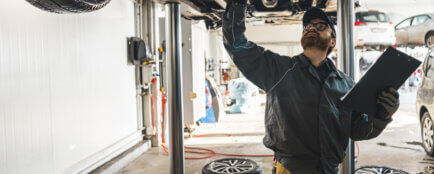Emissions measurement has been mandatory in the Czech Republic for several decades. Nevertheless, there are still cases where vehicle owners, or even individual technical inspection stations (STK), try to circumvent the tests – usually to save time or money. For the driver, a ‘clean bill of health’ is the assurance that they can continue to operate their car legally. The risk of such a move is higher today than ever before – not only because of stricter state control mechanisms, but also because legislation is continually refining the definition of fraud and allowing for increased penalties.
What does the law say about emissions falsification?
The basic legislation for measuring emissions is the Law on the Conditions of Operation of Vehicles on Roads. This stipulates that the vehicle must comply with specified emission limits and that the inspection is carried out by an accredited emission measurement station (SME) or STK (technical inspection station).
According to this law, falsification is not only the intentional alteration of data in the report, but also any technical manipulation that may lead to a distorted result. This includes disconnecting the Diesel Particulate Filter (DPF), modifying the control unit software, overlaying the Vehicle Identification Number (VIN) on the emissions tester or using a “flying VIN” – uploading the results of another car.
Are you solving a similar problem?
Did you make a mistake when measuring emissions?
Are you facing a fine or a driving ban? Don’t let it go any further. We’ll help you defend yourself to the fullest extent of the law. Whether you’re an MOT technician, a garage operator or an ordinary driver who’s got into trouble – we know how to help.
I need advice
- When you order, you know what you will get and how much it will cost.
- We handle everything online or in person at one of our 6 offices.
- We handle 8 out of 10 requests within 2 working days.
- We have specialists for every field of law.
The most common emission measurement fraud
Control unit software modifications (“cheat boxes”)
Adding cheat boxes or reprogramming the ECU (engine control unit) is one of the most effective, but also one of the riskiest practices. The device can temporarily reduce fuel injection or adjust the exhaust gas temperature to bring NOx (nitrogen oxides) levels below the limit during a test. Meanwhile, OBDII diagnostics often reveal no permanent record.
Removal / deactivation of DPF, EGR, SCR
The DPF filter captures particulate matter from the exhaust gases of diesel engines. EGR valves reduce the combustion temperature and thus the emissions of nitrogen oxides (NOx). Removing them leads to a dramatic deterioration in emissions, and often also to the cancellation of emission limits set by the manufacturer. Instead of legally cleaning the DPF, some garages simply mechanically remove and software deactivate the filter. However, thanks to tighter controls, OBD diagnostics and more accurate smoke meters, modern emission measurement stations (SME) are increasingly able to detect these interventions.
Overwriting of diagnostic data and false logs (“flying VINs”)
With older STK and emissions systems, it was technically possible to manipulate the VIN, for example by overwriting it in a local database, and issue a report for another vehicle. Today, all devices are obligatorily connected online to the central vehicle register. The VIN is verified in real time and any irregularity will block the process or trigger an inspection by the Ministry of Transport. This makes attempts at so-called “flying VINs” significantly riskier than before and can lead to criminal prosecution.
Handling OBDII during the test
During the test, a special dongle (i.e., an adapter that plugs into a diagnostic socket) plugs into OBDII (On-Board Diagnostics), a standard connector in most modern cars) and plays pre-recorded diagnostic data from a “healthy” car. The Road Traffic Regulation Act also considers this technique to be tampering, even though it does not directly interfere with the car’s hardware.
What are the penalties for falsifying emissions?
Drivers can be fined between CZK 4,000 and CZK 10,000 for cheating on emissions measurements . In addition, you can get 6 points for driving an unroadworthy vehicle. In more severe cases, the administrative authority of the Road Traffic Act can impose a driving ban of 6 to 12 months. If the vehicle is used in business, the operator also risks a flat penalty of CZK 100,000 for unauthorised operation.
The STK inspector has the power to take the vehicle out of service and prevent its registration until the owner of the vehicle ensures that the defect is rectified.
A garage or STK that has participated in the falsification commits an administrative offence and may also face prosecution under the Criminal Code (damage and endangerment of the operation of a public utility). The technician who physically carries out the tampering is personally liable and faces a ban.
If a technical inspection station (STK) or an emission measurement station (SME) is involved in the manipulation, their authorisation may be withdrawn. In the case of regular STKs, the competent regional authority decides on this and the operator may apply for a new licence as soon as he has again fulfilled the legal conditions.
For SMEs, the licence is revoked by the municipal authority of the municipality with extended jurisdiction and a new application can only be submitted after three years.
In the case of so-called test or specialised STKs (e.g. for ADR vehicles), the licence is withdrawn by the Ministry of Transport, and the three-year waiting period applies here as well.
After the loss of the licence, the station must cease operations and may no longer use the measuring equipment. However, the law does not impose mandatory physical disposal of the equipment, only its decommissioning or transfer to another entity with a valid permit.
Tip for article
Tip: Fraud is one of the most commonly committed crimes. There are many frauds, new ones are constantly being created and old ones are evolving and adapting to today’s times. We will give you advice on how to defend yourself.
Stricter controls and digitalisation are on the way
By 2026, every SME will be required to send real-time data to the central CEMIS system. Analysis using machine learning algorithms will instantly evaluate suspicious deviations and inspectors can visit the STK even while measurements are in progress.
The Euro 7 regulation, which will come into force on 1 July 2030, will tighten the limits for PM10 (particulate matter) and NOx (oxides of nitrogen) compared to Euro 6. This will put operators of vehicles adapted “on the edge” of the current limits at risk of not passing after 2030 without costly modifications.
There are also plans to link the Czech vehicle registry with the databases of Germany and Austria. Thus, a car imported with a falsified protocol from abroad may be caught already at the import control.
How to pass the emission control without fraud
Start by regularly maintaining your vehicle – changing filters and oil according to the service schedule significantly reduces CO and PM emissions. If you make legal software modifications, such as increasing the power of the ECU, be sure to record the change in the Type E report, otherwise you risk having your licence revoked. You can also take advantage of a precautionary smoke meter before the MOT – have your smokiness measured at a regular garage, where for a cost of around CZK 400 they can alert you to a potential problem in time, which could cost you a fine later. And if you manage a fleet of vehicles, put in place an internal protocol that the vehicle won’t pass an MOT unless the diagnostics show a ‘no fault’ condition – because one mistake can put the brakes on the whole job.
Cheating on emissions measurements may seem like a quick way to save money, but experience and decisions by the authorities show otherwise. A fine of several tens of thousands, the risk of driving ban or loss of the license of the STK are just the tip of the iceberg. Far more expensive can be the sudden need to buy a new DPF, software or even a whole vehicle to bring the car back into compliance with the stricter limits. Moreover, in the age of digitalisation and international data sharing, the ability to pass off counterfeits unobtrusively is fast disappearing. So instead of fraud, it pays to invest in regular maintenance and modern diagnostic procedures.
Summary
Emissions measurement has been mandatory in the Czech Republic for several decades, but despite strict laws and modern technology, there are still cases where vehicle owners or technical inspection stations (STK) seek to circumvent the tests, often to save time or money. The legislative framework clearly defines emissions falsification not only as the manipulation of reports, but also technical interventions such as the removal of diesel particulate filters (DPF), modification of the control unit software or the use of so-called ‘flying VINs’. The most common tricks also include plugging special “cheat boxes” or dongles into the OBDII diagnostic socket to play false data during the test. However, modern online systems linked to the central vehicle registry make these practices much more complicated and any irregularity can trigger an immediate inspection or prosecution. Fake emissions are punishable by fines of between CZK 4,000 and CZK 10,000, six penalty points or a driving ban of up to 18 months. A station that engages in fraud can lose its licence with a three-year ban on further applications, which means out of business. By 2026, there are plans for mandatory online transmission of measurement data to the central CEMIS system, where artificial intelligence will instantly assess suspicious deviations and inspectors will be able to intervene even during an ongoing inspection. From 1 July 2030, the Euro 7 regulation will enter into force, tightening the limits for PM10 and nitrogen oxides, which will significantly increase the requirements for the technical condition of vehicles. The Czech vehicle register is also being linked to the databases of Germany and Austria to detect falsified logs more effectively at import. The best way to pass the emissions inspection without complications and penalties is regular vehicle maintenance, including filter and oil changes, legal registration of software modifications, preventive smog measurement in the workshop and the introduction of internal controls, especially in company fleets. Cheating may seem like an easy way to save money, but the financial, legal and reputational risks are high and, in the age of digitalisation and international data sharing, practically disadvantageous. Therefore, investing in proper care and modern diagnostic methods is not only prudent, but necessary.




